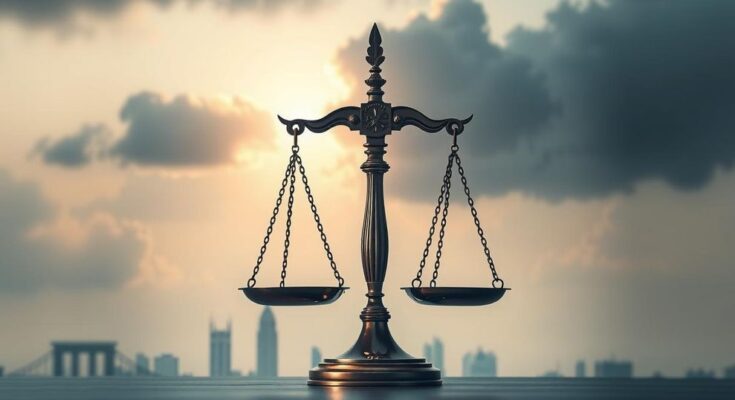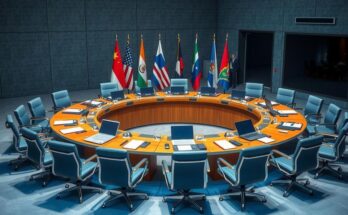Professor Karima Bennoune, a distinguished legal expert from the University of Michigan Law School, recently testified before the Tom Lantos Human Rights Commission. She addressed the ongoing cultural and identity erasure perpetrated by the Russian Federation amid its aggressive war against Ukraine. Bennoune emphasized a troubling connection between these actions and President Vladimir Putin’s justification for the war, asserting that it is an attempt to erase the uniqueness of Ukraine’s identity and cultural existence.
Citing UNESCO’s reports, she highlighted that since the onset of the invasion in February 2022, 438 cultural sites in Ukraine—including monuments, theaters, and libraries—have suffered extensive damage. These attacks, according to Bennoune, are not random acts of war but deliberate assaults on the heart and soul of the Ukrainian people and their heritage. “If you destroy [a people’s] achievements and their history, then it’s like they never existed,” she warned, asserting the need for accountability and international support.
Bennoune drew on her expertise as a former UN special rapporteur, explaining that these destructive tactics exemplify a form of “cultural warfare.” This type of warfare seeks to eradicate identities that don’t fit a certain oppressive narrative, which she referred to as “cultural engineering.” During her testimony, she echoed UNESCO’s sentiments on such destruction being akin to “cultural cleansing,” a targeted attack that heightens the psychological toll on affected populations.
As the sole lawyer at the congressional hearing, Bennoune emphasized that cultural heritage is not merely physical artifacts but includes the customs, languages, and practices that make a society unique. She stated that these elements are intertwined and equally targeted during conflicts. “Cultural heritage is a fundamental resource needed for people to enjoy a range of human rights,” she asserted while referencing international agreements that underscore the importance of protecting such heritage.
Bennoune also recognized the crucial role of cultural workers in safeguarding this heritage, calling attention to the tragic case of Iryna Osadcha, a museum director who lost her life in the conflict. She argued that accountability for cultural rights violations should be integral to any accountability mechanism post-conflict, focusing not just on physical destruction but also on the emotional and cultural impact on communities.
In closing, Bennoune conveyed a deep sense of sorrow for the suffering inflicted upon those whose histories are under siege. She urged for strong global responses to counter the ruthless destruction of cultural heritage, emphasizing its significance in granting Ukrainians the strength to persevere through dark times.
Professor Karima Bennoune testified before Congress about the systematic destruction of Ukrainian cultural heritage amid the Russian invasion. She expressed grave concerns about attacks on cultural identity, urging for global accountability and support for cultural workers. Citing damaging reports by UNESCO, Bennoune called these actions cultural crimes that necessitate strong condemnation and thorough investigations.
Professor Bennoune’s testimony underscores the critical need for international awareness and action regarding cultural heritage in conflict zones, highlighting that such heritage is essential for a people’s identity and history. The systematic destruction of cultural sites in Ukraine is not merely collateral damage in war, but a targeted assault on the roots of a nation. Strong accountability measures and support for cultural preservation are imperative in combating the ongoing erasure of Ukrainian identity and history.
The article revolves around the testimony of Professor Karima Bennoune, an expert in international law and human rights, before the U.S. Congress regarding the Russian invasion of Ukraine and its cultural implications. This testimony focuses on the systematic attacks on Ukrainian cultural sites as a strategic effort to erase Ukraine’s identity. Bennoune’s insights highlight the grave connections between cultural heritage, human rights, and the need for international accountability in times of conflict, particularly in the context of ongoing human rights violations in Ukraine.
Original Source: michigan.law.umich.edu



